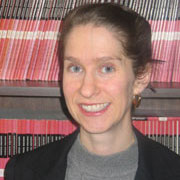SC 1-21 will prepare a commentary on critical research needs for evaluation of low-dose radiation biological and health effects. The focus of the commentary will be on the integration of results of basic science studies, including biomarkers of cancer and other diseases, with epidemiological studies on health effects of low-dose radiation exposures.
Commentary No. 24 was published on October 27, 2015. The following are the contents of the Commentary.
Executive Summary
1. Introduction
1.1 Low Doses and Low Dose Rates
1.2 Use of Radiation Biology Data to Reduce the Uncertainty in Risk Estimates
2.1 Risk Assessment Process and Associated Uncertainties
2.2 Modeling Uncertainties: Dosimetric, Epidemiologic and Biological
2.3 Transfer of Risk Between Populations of Different Countries
2.4 Extrapolating Low-Dose Effects from In Vitro to In Vivo; Animal to Human
3.1 Epidemiologic Studies Focused on Cancer Outcomes
3.1.1 Chromosome Aberration Studies
3.1.2 Atomic-Bomb Survivors
3.1.3 Pelvic Irradiation Studies
3.1.4 Occupational Studies
3.1.5 Environmental Background Studies
3.1.6 Transgenerational Studies
3.1.7 Gene and Radiation Interaction: The Women’s Environmental Cancer and Radiation Epidemiology Study
3.1.8 Retinoblastoma
3.2 Epidemiologic Studies Focused on Noncancer Outcomes
4. Bioindicators from Radiation Biology Studies4.1 DNA Damage and Repair
4.2 Signaling of DNA Damage at Low Doses
4.3 Chromosome Alterations
4.4 Mutations
4.5 Radiation-Induced Genomic Instability
4.6 Modulators of Response
4.6.1 Adaptive Responses
4.6.2 Bystander Effects
4.6.3 Genetic Susceptibility and Interactions with Radiation
4.6.4 Interactions with Environmental and Lifestyle Factors
5.1 Targeted Research to Identify Adverse Outcome Pathways and Bioindicators of Response
5.2 Biologically Based Modeling
5.2.1 Biologically Based Dose-Response Approach 5.2.2 Systems Biology
5.3 Registries of Medical-Imaging Exposures Linked to Outcomes and Biological Materials
5.4 Facilities and Interdisciplinary Training
5.4.1 Facilities
5.4.2 Interdisciplinary Training
NCRP is grateful to the Centers for Disease Control and Prevention and the U.S. Department of Energy for financial support of this work.
The membership of SC 1-21 is:

SALLY A. AMUNDSON
is an Associate Professor of Radiation Oncology at the Center for Radiological Research of Columbia University Irving Medical Center in New York, where she is Co-Director of the Center for High-Throughput Minimally-Invasive Radiation Biodosimetry. She holds a doctorate in radiation biology and cancer biology from the Harvard School of Public Health. Her research uses functional genomics approaches to study low-dose radiation and bystander effects, unique effects of space radiation, the development of gene expression approaches for radiation biodosimetry, and the linear-energy transfer dependence of heavy ion radiotherapy. Prior to joining the group at Columbia, Dr. Amundson worked on molecular radiation biology in the Division of Basic Science at the National Cancer Institute (NCI), where she helped to develop global gene expression profiling techniques, and where she was an Adjunct Investigator in the NCI Radiation Epidemiology Branch. She served on the Science Advisory Committee of the Radiation Effects Research Foundation in Hiroshima from 2009 to 2014 and on the U.S. Environmental Protection Agency Science Advisory Board’s Radiation Advisory Committee from 2015 to 2022. She has been a member of the Multidisciplinary European Low Dose Initiative (MELODI) Scientific Advisory Committee since 2016 and has served on the NCRP since 2004. Dr. Amundson is an Associate Editor of Radiation Research, and has served on the organizing and program committees for numerous meetings, including two of the American Statistical Association Conferences on Radiation and Health, which aim to integrate radiation biology with epidemiology. She is a recipient of the Michael Fry Research Award from the Radiation Research Society (RRS), and served as President of the RRS in 2021 to 2022. |

Jonine L. Bernstein is an Attending Epidemiologist at the Memorial Sloan-Kettering Cancer Center (MSKCC) in New York City. Her core research focus is on breast cancer and gliomas and on understanding cancer risk and progression in order to identify those at highest risk because of gene carrier status, environmental exposures, or a combination of both. Dr. Bernstein is the Principle Investigator of the National Cancer Institute (NCI)-funded international 24-center Women's Environmental Cancer Radiation and Epidemiologic (WECARE) Study which was specifically designed to examine the interaction of radiation exposure and genetic predisposition in breast cancer, especially radiation-associated contralateral breast cancer (CBC) among 3,700 women with CBC and unilateral breast cancer. The WECARE Study has served as the source population for studies of candidate genes such as BRCA1, BRCA2, CHEK2, and ATM, candidate gene pathways of DNA damage response involved in radiation-induced double-strand break repair—ATM, CHEK2, P53 binding protein (53BPI), and MDC1, Mre11, Rad50, and Nbs1 (e.g., MRN nuclease complex), a genome-wide association study, and most recently mammographic density. The global hypothesis across these studies is that women who carry certain types of mutations will be more susceptible to breast cancer than noncarriers, and possibly to radiation-associated breast cancer. Dr. Bernstein currently serves as a member of the Board of Directors of the American College of Epidemiology, the External Advisory group for the NCI-sponsored Breast Cancer Family Registry, the National Council on Radiation Protection and Measurements, and most recently the NCI Board of Scientific Counselors-Clinical Sciences and Epidemiology. For the past two years, she has served on the Organizing Committee of the American Statistical Association Conference on Radiation and Health (2012 and 2014 meetings), and was Co-Chair of the Third North American Congress of Epidemiology, held in June 2011 for which she was honored by the 2012 ACE Award for Leadership and Service in Epidemiology. Dr. Bernstein holds a PhD in Epidemiology from Yale University, an MS in Applied Biometry from the University of Southern California, and an AB from Brown University. Before joining the faculty at MSKCC, she was Deputy Director of the Division of Epidemiology at Mount Sinai School of Medicine. |

RAYMOND A GUILMETTE received a BS in nuclear engineering from Rensselaer Polytechnic Institute and an MS in environmental health sciences and a PhD in radiological health from New York University. For almost 40 y, he has been studying the metabolism, biokinetics, dosimetry, biological effects of internally deposited radionuclides, developing methods for removing radionuclides from the body (decorporation), and studying the mechanisms of deposition, clearance and retention of inhaled materials. Most of this research was performed at the Lovelace Respiratory Research Institute (LRRI) (formerly the Inhalation Toxicology Research Institute), where he worked for 23 y. From 2000 through 2007, he was team leader for internal dosimetry at the Los Alamos National Laboratory, assessing radiation doses for workers who were exposed to radionuclides associated with the nuclear weapons industry. In 2007, he returned to LRRI as director of the Center for Countermeasures Against Radiation where he evaluated the efficacy of chemical compounds designed to decorporate radionuclides as well as drugs designed to ameliorate the effects of acute radiation syndrome from large external radiation doses in small and large animal models. He is a past president of the Health Physics Society, received its Distinguished Scientific Achievement Award in 2002, and has given several honorary lectures (Newell Stannard Memorial Lecture, 2006; G. William Morgan Lecture, HPS, 2009; inaugural Patricia W. Durbin Memorial Lecture, Lawrence Berkeley National Laboratory, 2010). He is a member of scientific committees of the International Commission on Radiological Protection, NCRP (a past board member), the International Agency for Research on Cancer, U.S. Environmental Protection Agency, and the U.S. National Academies of Science. |

AMY KRONENBERGis a staff biophysicist at the Lawrence Berkeley National Laboratory (LBNL). Her research focuses on fundamental processes that may result in genomic change following exposure to sparsely or densely ionizing radiation. Her group has also addressed links between molecular mechanisms of DNA damage repair and programmed cell death. Dr. Kronenberg has taught radiation biophysics to students at the National Aeronautics and Space Administration Space Radiation Summer School. She received her ScD in Cancer Biology from the Harvard School of Public Health. She has served on review panels for a host of federal agencies and international scientific review panels. She is a senior editor for Radiation Research and serves on the External Advisory Board of the NASA Innovative Advanced Concepts program. Dr. Kronenberg's activities with NCRP have included prior service on the Board of Directors, as a member or chair of the Nominating Committee, and as a member of several scientific committees. She is currently a member of NCRP Program Area Committee 1. |
 M.P. Little M.P. Little |
 J.A. Nickoloff J.A. Nickoloff |
 S.N. Powell S.N. Powell |

DANIEL O. STRAM is Professor in the Department of Preventive Medicine at the Keck School of Medicine of the University of Southern California. He received his PhD in statistics from Temple University in 1983 and served as a postdoctoral fellow in the Biostatistics Department of the Harvard School of Public Health from 1984 to 1986. From 1986 to 1989 he was a research associate at the Radiation Effects Research Foundation in Hiroshima, Japan. Dr. Stram's main areas of research are in the statistical problems that arise in the design, analysis and interpretation of epidemiological studies of cancer and other diseases. His work on radiation epidemiology studies includes: (1) helping to characterize the statistical nature of errors in dose estimates for the atomic-bomb survivor study, (2) developing a multi-level variance components model for the dosimetry used in the Colorado Plateau uranium miners cohort for the purpose of better understanding dose and dose-rate effects in those data, and (3) characterizing study power and sample size issues in epidemiologic studies in which a complex dosimetry system is used to estimate radiation dose. Besides the field of radiation epidemiology his past and current research has focused on statistical issues relevant to clinical trials of treatment for pediatric cancer, nutritional epidemiology studies, and to studies of the genetics of complex diseases. He is an elected fellow of the American Statistical Association and has authored or co-authored over 200 peer reviewed articles. |

R. JULIAN PRESTON
is currently a Special Government Employee (Expert) with the Radiation Protection Division of the U.S. Environmental Protection Agency (EPA). He was previously the Associate Director for Health for the National Health and Environmental Effects Research Laboratory of EPA. He also served as Director of the Environmental Carcinogenesis Division at EPA and as senior science adviser at the Chemical Industry Institute of Toxicology. He has been employed at the Biology Division of the Oak Ridge National Laboratory and has served as Associate Director for the Oak Ridge-University of Tennessee Graduate School for Biomedical Sciences. Dr. Preston's research and current activities have focused on the mechanisms of radiation and chemical carcinogenesis and the approaches for incorporating these types of data into cancer risk assessments by integrating epidemiology and radiation biology. Dr. Preston currently serves on NCRP committees and as a member of the National Academy of Sciences (NAS) Nuclear and Radiation Studies Board. He was recently a member of an Office of Science and Technology Policy Committee on Low Dose Radiation Research. He was also recently co-chair of an NAS Committee for a National Aeronautics and Space Administration sponsored project on revising dose limits for astronauts. Dr. Preston was chair of Committee 1 of the International Commission on Radiological Protection (ICRP), a member of the ICRP Main Commission, and the Representative and a member of the U.S. delegation to the United Nations Scientific Committee on the Effects of Atomic Radiation. He served as Chair for the National Research Council's Committee to Assess the Scientific Information for the Radiation Exposure Screening and Education Program and on the Task Group on the Biological Effects of Space Radiation. He is an associate editor of Environmental and Molecular Mutagenesis. Dr. Preston has had more than 250 peer-reviewed papers and chapters published. He received his BA and MA from Peterhouse, Cambridge University, England, ingenetics and his PhD from Reading University, England, in radiation genetics. |

MARVIN ROSENSTEIN is a consultant, currently concentrating on the preparation of scientific reports produced by NCRP in all subject areas. From 1982 to 1995, he was Director, Office of Health Physics at the Center for Devices and Radiological Health, U.S. Food and Drug Administration. He also served in a number of scientific and management positions related to radiation protection during his 33 y career as a Commissioned Officer in the U.S. Public Health Service, from 1962 to 1995. He received a BS in Chemical Engineering (University of Maryland, 1961), an MS in Environmental Engineering (Rensselaer Polytechnic Institute, 1966) and a PhD in Nuclear Engineering (University of Maryland, 1971). His technical work has concentrated on radiation dosimetry, particularly with regard to x rays used for medical diagnosis, epidemiological studies of exposed populations, and public radiation emergencies. He is a Distinguished Emeritus Member of NCRP (after serving as a Council member for 18 y), and an Emeritus member of Committee 3 (Protection in Medicine) of the International Commission on Radiological Protection [after serving on Committee 3 for 28 y (1985 to 2013)]. He was also a member of the International Commission on Radiation Units and Measurements report committee that produced Report 74, Patient Dosimetry for X Rays Used in Medical Imaging. |
Meetings:
SC 1-20 Biological Effectiveness of Low Linear-Energy Transfer Radiation as a Function of Energy
SC 1-23 Guidance on Radiation Dose Limits for the Lens of the Eye
SC 1-24 Radiation Exposures in Space and the Potential for Central Nervous System Effects
SC 1-25 Recent Epidemiologic Studies and Implications for the Linear Nonthreshold Model



 News & Events
News & Events